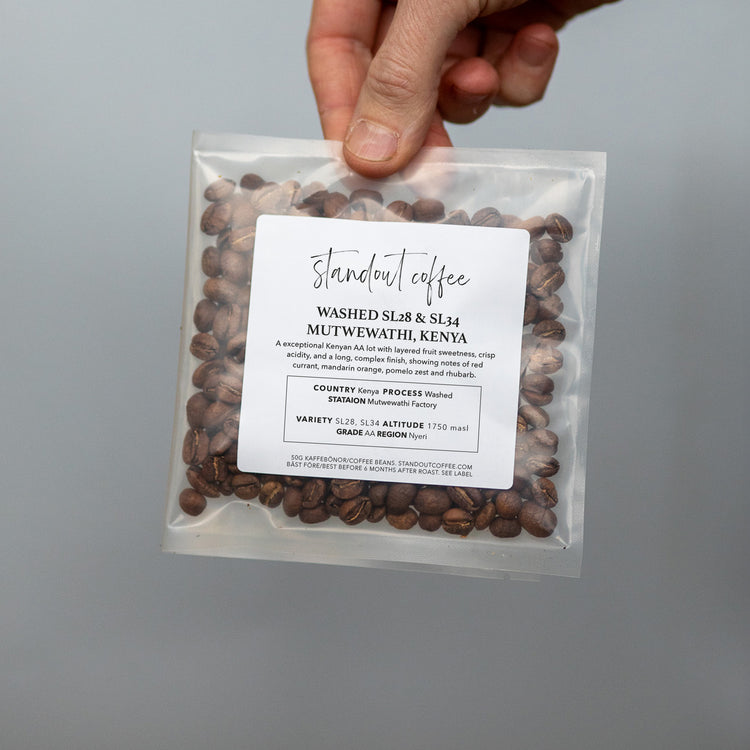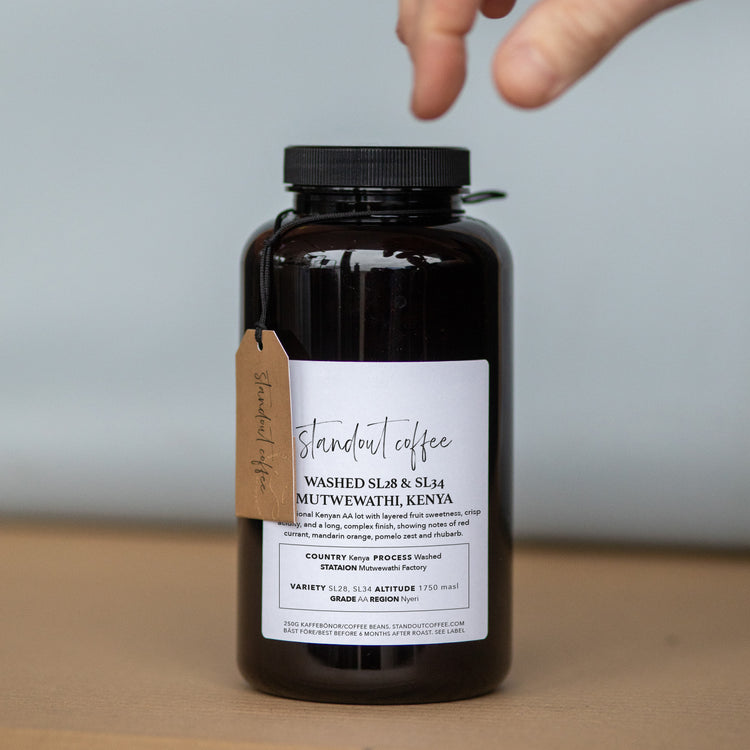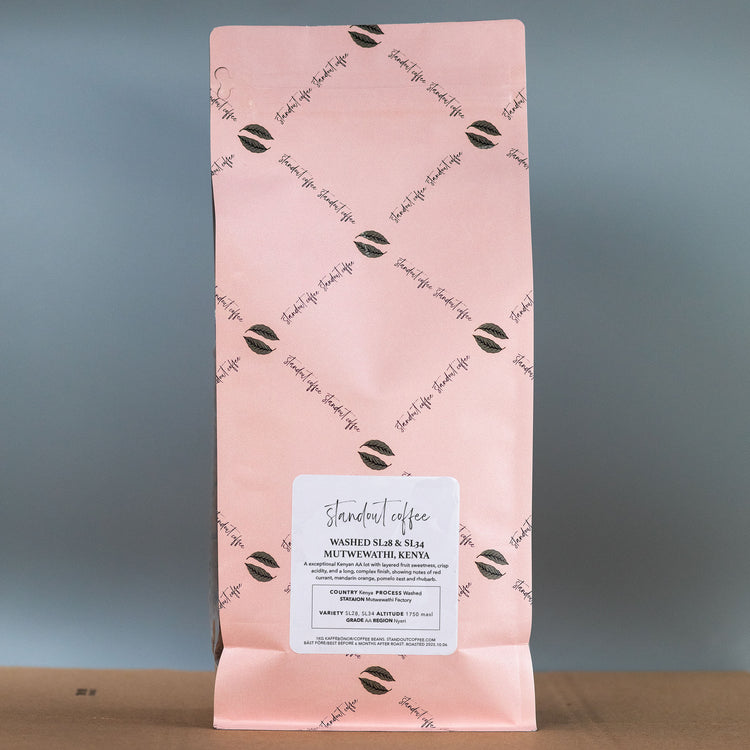


Product Details
A exceptional Kenyan AA lot with layered fruit sweetness, crisp acidity, and a long, complex finish, showing notes of red currant, mandarin orange, pomelo zest, a juicy body, and crisp rhubarb-like acidity.
Producer and Process Info
• Farm/Station: Mutwewathi Factory
• Cooperative: 750 smallholders, New Gikaru Farmer Cooperative Society
• Region: Nyeri, Aberdare Ranges – 1750 masl
• Varieties: SL28, SL34
• Process: Fully washed, fermented 12–16h, soaked, dried 7–21 days on raised beds
• Grade: AA
Cup Profile
Red currant
Mandarin orange
Pomelo zest
Juicy body
Crisp rhubarb acidity
Long, complex finish
Backstory
The Mutwewathi Factory is situated in Mukurweini Subcounty, Nyeri County, on the eastern slopes of the Aberdare Ranges. Owned by the New Gikaru Farmers Cooperative Society (FCS), this factory is one of five wet mills run by the cooperative, which was registered in 2001 and today counts more than 4,600 members. Alongside Mutwewathi, the cooperative operates Ichamara, Thangathi, Kahuro, and Kiuu factories, each contributing to Nyeri’s reputation as a benchmark region for Kenyan coffee.
Coffee at Mutwewathi is grown by around 750 smallholder members of the cooperative. Each farmer tends small plots, often less than 5 acres, cultivating coffee in the fertile volcanic soils that define Nyeri. Cherries are carefully handpicked at peak ripeness and delivered to the factory for processing.
At the factory, the cherries undergo the traditional Kenyan fully washed process. First, they are sorted to remove underripe and defective fruit, then pulped to strip away the outer skin. The resulting parchment coffee ferments in concrete tanks for 12 to 16 hours, with the exact time determined by climate and temperature. Fermentation breaks down the sticky mucilage, after which the parchment is washed in clean water and passed through grading channels. During peak harvest, when raised beds are fully occupied, the parchment is soaked in circulating water for up to 24 hours before being transferred to dry. Drying takes place on raised beds and solar dryers, lasting 7 to 21 days. Workers turn the parchment regularly and cover it during the hottest hours to ensure even drying and prevent defects — a hallmark of Kenya’s attention to detail.
This AA lot is composed of SL28 and SL34, two cultivars developed by Scott Agricultural Laboratories (SAL) during the 1930s and 1940s. These varieties became widely adopted for their deep root systems, which help them thrive even under limited rainfall, and for their balance of yield, disease resistance, and exceptional cup quality. Together, they form the backbone of Kenya’s coffee identity, producing the complex fruit-forward profiles the country is celebrated for.
Kenya’s coffee industry, while starting later than in neighboring countries, has built a global reputation for excellence. Today, more than 600,000 smallholders farm less than 5 acres each, yet collectively produce nearly 70% of the country’s coffee. Organized into Farmer Cooperative Societies, these smallholders deliver their harvests to factories like Mutwewathi, where rigorous quality control and traditional washed methods safeguard Kenya’s hallmark clarity, brightness, and complexity in the cup.
Sizes and Brewing Suggestions
Available in 50g, 250g, and 1kg. Ideal for filter brews such as V60, Kalita, or batch brew.
Roast style
Our roasts work beautifully as both filter and competition-style espresso, sitting between specialty and competition coffees. Coffee bars or private customers can request more info about roast philosophy or custom roasting by leaving a note at checkout.




